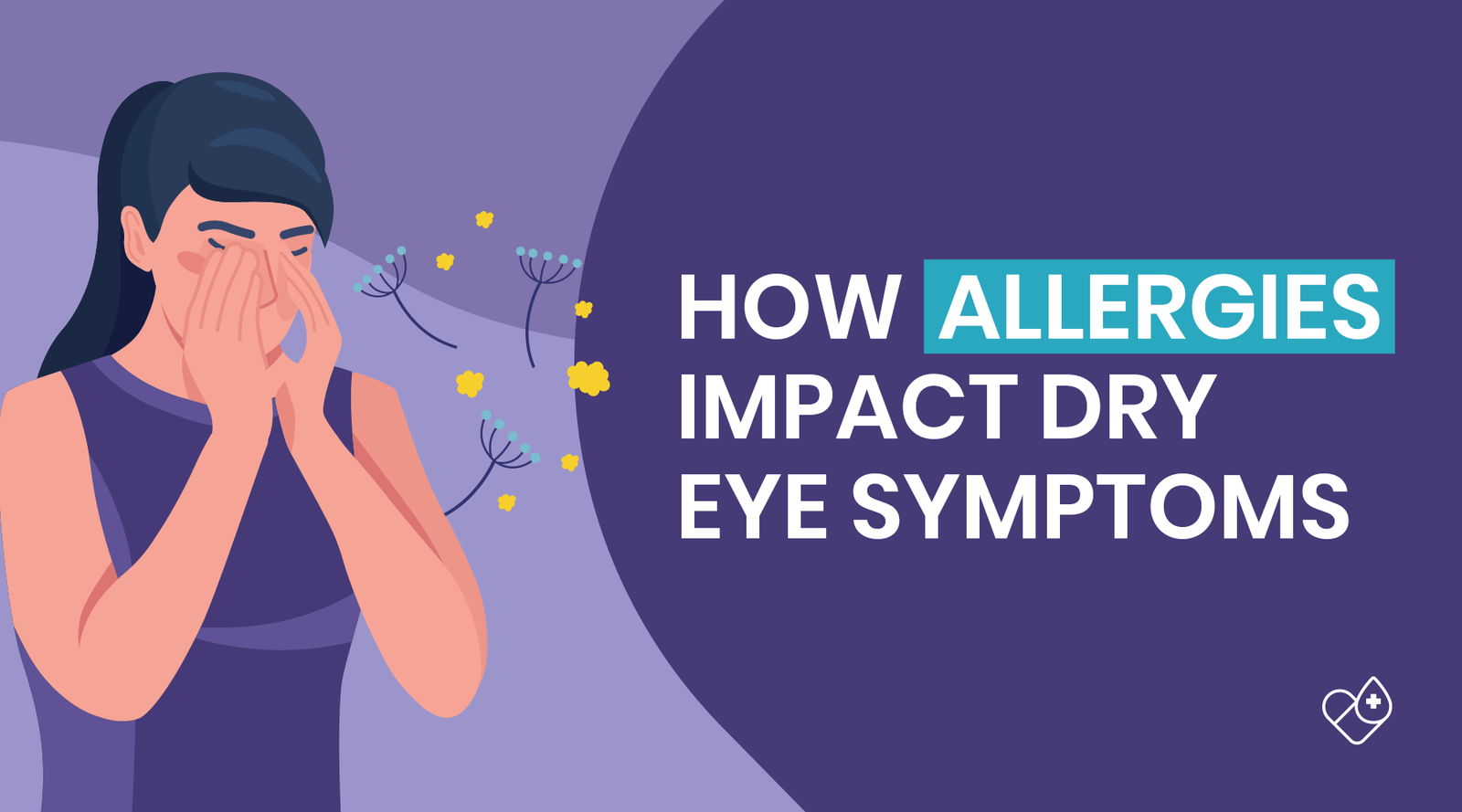How Allergies Impact Dry Eye Symptoms
Dry eye affects millions of people worldwide, causing discomfort and irritation in the eyes. While we often associate dry eye with factors like aging, prolonged screen time, or certain medical conditions, another lesser-known culprit is allergies. Yes, you read that right! Allergies can play a significant role in exacerbating dry eye symptoms and understanding this connection can be the key to finding relief. In this blog, we'll delve into the fascinating relationship between allergies and dry eye and provide you with essential insights to manage and alleviate your discomfort.
The Basics of Dry Eye:
Before we explore the allergy connection, let's quickly recap the basics of dry eye. Our eyes remain moist and comfortable due to the continuous production of tears that consist of water, oil, and mucus. Dry eye occurs when there's an imbalance in this tear production process, leading to insufficient moisture on the eye's surface. Common symptoms include redness, itchiness, stinging sensation, blurry vision, and increased sensitivity to light.
Allergies and Their Impact on the Eyes:
Allergies, on the other hand, are triggered when our immune system overreacts to harmless substances, such as pollen, pet dander, dust mites, or mold spores. The immune response releases histamines, causing various symptoms, including sneezing, runny nose, and itchy, watery eyes. This histamine release is a crucial factor in understanding how allergies and dry eye are interconnected.

The Allergy-Dry Eye Link:
When allergies strike and our eyes become itchy and watery, we are more likely to rub them vigorously to find relief. Unfortunately, this rubbing can worsen dry eye symptoms. The mechanical action of rubbing irritates the eyes' surface and interferes with the tear film, leading to quicker evaporation of tears. Additionally, the histamines released during an allergic reaction can reduce tear production, further contributing to dryness.
Environmental Triggers:
Various environmental factors can exacerbate both allergies and dry eye. Airborne allergens, like pollen or dust, are notorious for triggering allergic responses. Indoor environments with poor air quality, caused by air conditioning or heating systems, can also contribute to dry eye symptoms. Moreover, spending extended periods in front of screens can worsen both allergies and dry eye due to reduced blink rate and increased tear evaporation.
Tips for Finding Relief:
The good news is that there are several strategies to manage and alleviate the combined effects of allergies and dry eye:
Allergy Management: Identify and avoid allergens that trigger your allergies. Keep windows closed during high pollen seasons, use air purifiers at home, and regularly clean carpets and upholstery. Consulting an allergist to develop a personalized allergy management plan can also be beneficial.
Artificial Tears and Eye Drops: Over-the-counter artificial tears can help lubricate your eyes and relieve dryness. Additionally, particular eye drops that precisely target allergy-related inflammation can be beneficial. However, consult your eye care professional before using any eye drops.

Warm Compresses and Lid Massages: Applying a warm compress over closed eyes and gently massaging the eyelids can help unclog oil glands and improve tear film stability. Cold compresses can also provide relief for allergy-induced dry eye by reducing inflammation, alleviating redness and swelling, and soothing itchiness and burning sensations.
Blink Breaks and Screen Time Management: Take regular blink breaks when using digital devices and practice the 20-20-20 rule (every 20 minutes, look at something 20 feet away for 20 seconds). Limiting screen time can significantly reduce eye strain and discomfort.
Prescription Medications: In severe cases, your eye care professional may recommend prescription medications or immunotherapy to manage allergies and alleviate dry eye symptoms effectively.
As we've learned, allergies and dry eye are interconnected, with one condition often exacerbating the other. By understanding this link, you can take proactive steps to find relief and improve your ocular comfort. Remember, to manage allergies effectively, use lubricating eye drops, and follow lifestyle adjustments to minimize dry eye discomfort. However, if your symptoms persist or worsen, it's essential to consult an eye care professional for a comprehensive evaluation and personalized treatment plan. With the right approach, you can conquer allergies and dry eye discomfort and enjoy clear and comfortable vision once again.

